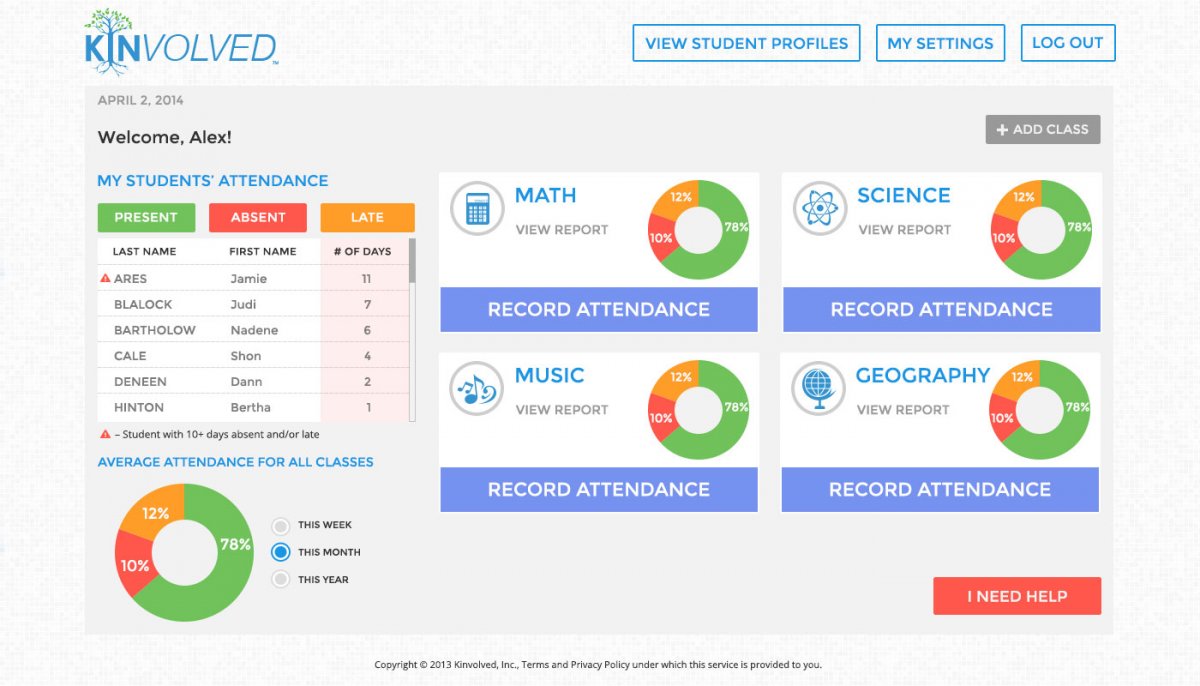Today we give a closer look at the app Kinvolved, a mobile application developed in the U.S. in 2012 to address the great challenge of Early School Leavers. Kinvolved is a mobile application for teachers which allows to have closer communication with students' families compared to the traditional way. Among its features it tracks student attendance, sends real-time SMS or emails to their families, it gathers data student attendance at school and relate them with graduation rates.
Attendance is the key indicator of graduation. Research shows that effective family engagement leads to increased student achievement, reduced absenteeism, and higher graduation rates (source: Kinvolved)
Ok, let me see if I got it right. It looks like we have (finally) found a solution for reducing the high rates of school drop-outs. After almost 20 years spent in organising working groups, expert groups, civil society meetings, after hundreds of pages of reports and policy recommendations, we find out that the solution to ESL was at our fingertips.
Why bother to discover the reasons of a problem, if you can use the Internet of Things (and of People) and install sensors on everything and everyone to prevent this problem to occur?
This question is silly, but is sadly true. The app Kinvolved is yet another example of how dangerous can Technology and Learning Analytics become in educational settings if managed by people lacking pedagogical basis.
Early School Leaving is instead a complex phenomenon that has multiple roots and is afflicting the U.S. as much as the rest of the world. Since 2000 with the Lisbon Strategy, reducing the rate of school drop-outs under 10% has been put as one of the main targets of the European Agenda. Being ESL such a complex issue to tackle, the 10% target was not met but postponed of 10 more years with the Europe 2020 strategy.
The reasons why young people drop out of school can be various and depend from country to country. The most common cases depend from lack of parental control, socio-economic problems, need of an employment, use of drugs, involvement in crime organisations. A share of the problem is also held by the educational providers, having insufficient resources and expertise to correctly address and support the students at risk of drop outs. Learner's involvement in education is yet another cause: lack of democracy and ownership of the learning process leads inevitably to disengagement and to abandon school.
It is clearly an oversimplification stating that the key for student success is attendance. There is no gain in forcing a disengaged student to go at school and seat at his/her desk. They can suffer from that, and that sufferance can evolve into episodes of bullyism and violence. These cases must be treated by professionals, teachers and psychologists. Parental involvement must also be measured correctly, depending from case to case. Most of the time parents happen to be the biggest shareholder of a young person's problems and having them too much involved risk to worsen the student to succeed on his/her own.
In conclusion, one needs to be really careful with educational app like Kinvolved, which aim to solve big problems with very easy steps. Technology is not always the cure to problems, unless its application has been thought through, tested and validated in theory from an ethical point of view and of course in practice.


